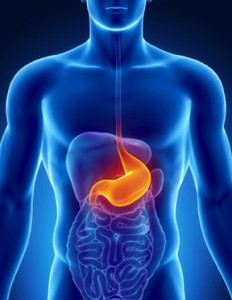Ramadan fasting has a healing effect. The whole gastro-intestinal system takes good rest for the first time in the whole year.

By Dr Muhammad Karim Islamabadi
I feel pity for the stomach. I really feel pity for the stomach, intestines and in fact the whole gastro-intestinal system. And this is so because the whole year, we never let this system take rest.
Apart from the three main meals, every few minutes, we pour something in our stomach, be it snacks, drinks, fruits or other eatables. None of us ever thinks that the food which we had already sent in before is being digested by the stomach and right when it has reached halfway, we dump some more into it only to disrupt the digestive work previously completed. This of course makes the food stay a longer time in the stomach which may result in dyspepsia, gastritis, irritable bowel syndrome etc.
In contrast, Ramadan is the only period in which our gastro-intestinal system takes good rest as the Muslims observe fasting for the whole month. Digestion is not just the name of churning movements of the stomach and the absorption by the intestines, but it is a huge integrated system involving the nervous system, as well as hormone secreting glands.
So the whole gastro-intestinal system takes good rest for the first time in the whole year. As digestion begins in the mouth where the salivary glands secrete excessive saliva which carries hormones to act upon the food, the burden on the salivary glands and teeth is reduced in the month of Ramadan. The oesophagus takes rest during fasting as there is no food to require its propelling movements which push the food to the stomach. Similarly, the stomach and the intestines also take good rest as after completing the digestion and absorption of food consumed at Sehri time, they have nothing to do till Iftar time. Even glands like pancreas and gall bladder which secrete hormones also reduce their secretions as there is no food to demand their hormones.
In short, Ramadan lifts the heavy burden and strain which we have put on our gastrointestinal system and gives it what can said to be a refreshing annual vacation of 30 days.
Ramadan fasting has a healing effect on peptic ulcers as it curbs smoking which is recognised as a precipitating factor for the peptic ulcer. It also has beneficial effects on inflammatory bowel disease, irritable bowel syndrome and gastritis.
Last, but not the least, imagine a person who has fasted for more or less 14-15 hours and is now ready to break his fast. His taste buds have taken good rest, so at Iftar, the food is going to taste more pleasant and enjoyable than ever before. This is yet another bounty of Ramadan. Allah’s Messenger Prophet Muhammad (Pbuh) says: “There are two pleasures for the fasting person, one at the time of breaking his fast and the other at the time when he will meet his Lord, then he will be pleased because of his fasting.”

COMMENTS